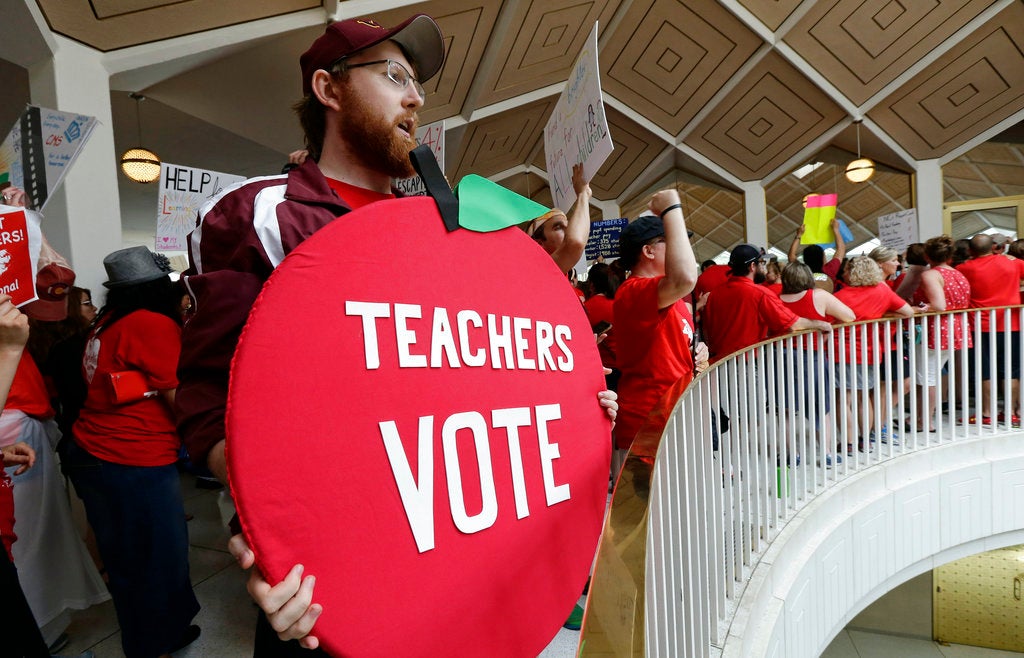Other Voices: Legislators should listen to teachers
Published 9:53 pm Sunday, May 20, 2018

- Kevin Poirier, an educator from West Charlotte school, gathers with other educators during a teachers rally at the General Assembly in Raleigh, N.C., Wednesday, May 16, 2018. Thousands of teachers rallied the state capital seeking a political showdown over wages and funding for public school classrooms. (AP Photo/Gerry Broome)
From an editorial in The News & Observer:
How many teachers does it take for a legislature to learn? …
The quality of a school and the success of its students are not only a function of money. There also must be inspiration, experience and dedication. But without adequate funding, schools run short not only of their tangible needs, but of these vital intangibles as well. Inspiration gives way to frustration, experience shrinks as teacher turnover rises and dedication is eclipsed by demoralization.
Across North Carolina, teachers have resisted those negative turns, but after years of budget austerity and policy changes that have stung and belittled teachers, they have had enough. Like teachers in other Southern states where school funding has been squeezed to allow for bigger tax cuts, North Carolina’s teachers are fed up and showing up. ….
By now the numbers are familiar:
• When adjusted for inflation, North Carolina’s average teacher pay is 9.4 percent less than it was in 2009.
• North Carolina teacher pay ranks 37th in the nation and is $9,600 below the national average.
• Per-pupil spending, adjusted for inflation, is 12 percent below the pre-recession level and ranks 39th nationally.
• There are fewer teachers per student than in 2008 and schools have lost nearly 7,500 teacher assistants due to state budget cuts.
• Teachers have lost longevity pay, pay for advanced degrees and protection from arbitrary dismissal.
• As wealthier counties increase local teacher pay supplements to offset losses in state funding, poorer counties are increasingly unable to attract or retain teachers. Some classes are staffed by substitutes for the entire school year.
• Textbook funding is down by more than half. Some books are outdated and held together by tape. Teachers spend hundreds of dollars of their own money on school supplies.
These shortages are made all the more reprehensible by the state’s growing capacity to do more as the national and state economies have recovered. Instead of adequate education funding, the legislature has chosen the easy, but ultimately costly, path of sharply cutting taxes in a way that primarily benefits wealthy individuals and profitable corporations, both of which are enjoying a similar windfall from federal tax cuts.
Michael Leachman, director of state fiscal research at the Center on Budget and Policy Priorities, was in Raleigh Tuesday to give a talk entitled: “Can state lawmakers break their most dangerous policy addiction?” Namely, a craving for tax cuts. …
“You can see that over time as people felt the impact (of tax cuts) in their communities, they started to see through that storyline and recognized they that they had to reverse course,” Leachman said in an interview.
North Carolina teachers and parents are seeing through that storyline too.


